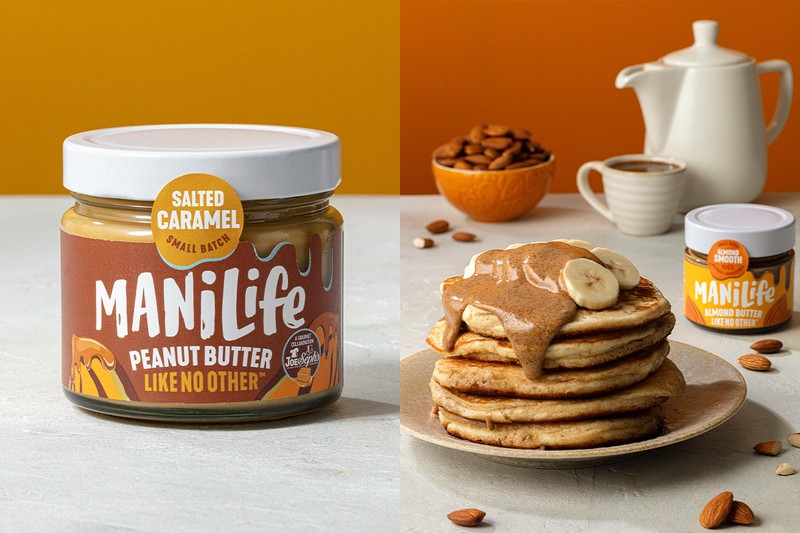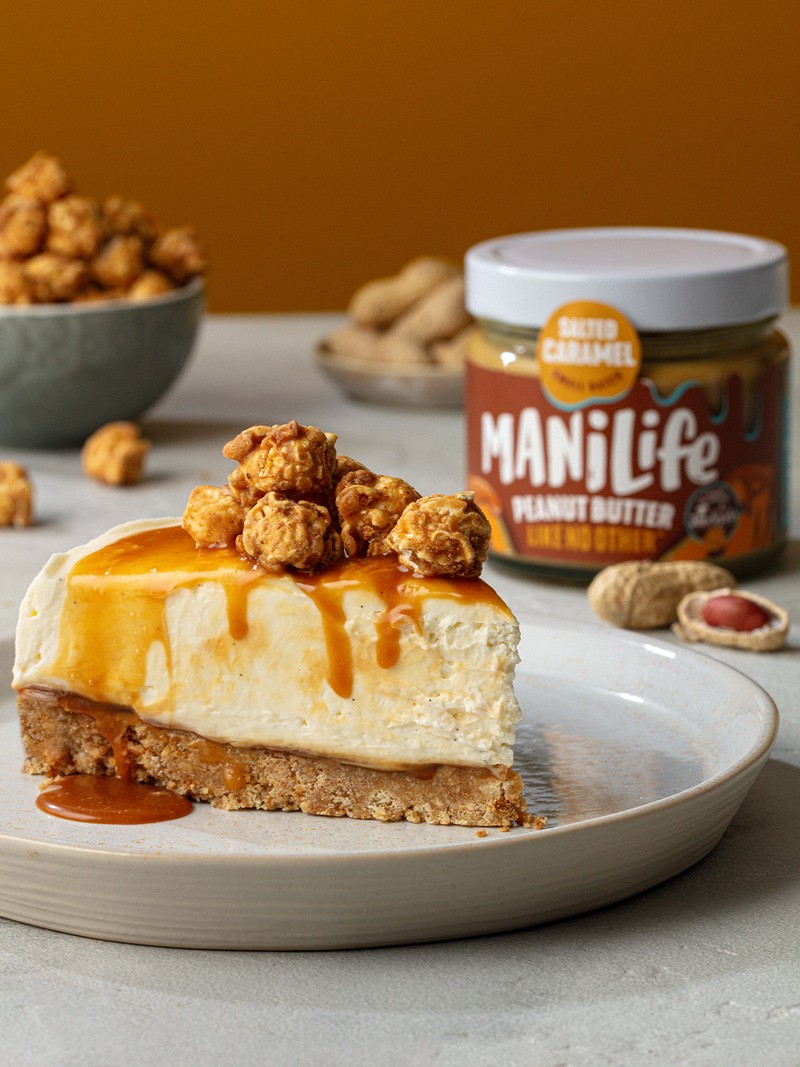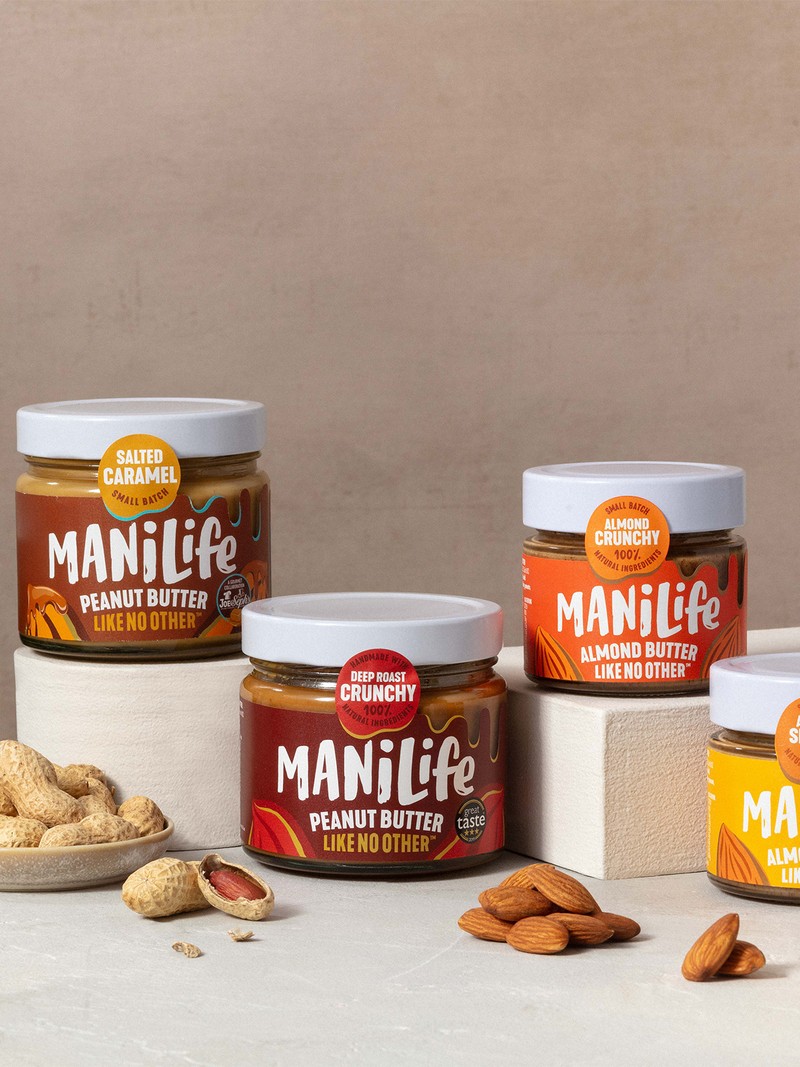
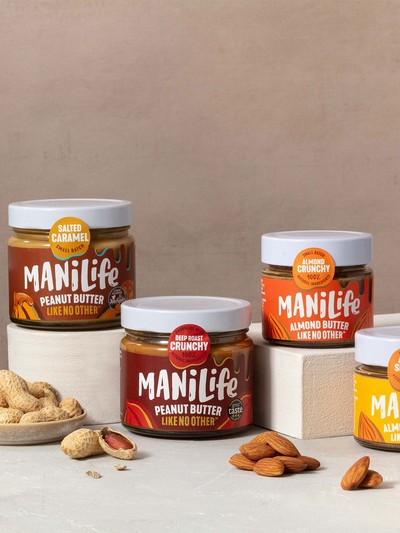
A Food Entrepreneur Talks Career Lessons, Advice & Looking Ahead
The moment I was offered a job as an accountant at PwC, I knew I didn't really want to do it. I decided to put it off and move to Argentina – the idea was to basically build up enough guilt to become an accountant afterwards. But when I arrived, I fell into working with a peanut butter social enterprise. We used to go around soup kitchens, teaching kids and families how to use the stuff. Nutritionally, this peanut butter was magic – and it tasted good as well. My interest developed from there, and it wasn’t long before I thought about starting my own brand.
I started experimenting with recipes in my friend's kitchen and selling it to the local community. Oddly, though, Argentines don't eat much peanut butter, so it wasn't selling very well. The turning point came when I met the family that runs the peanut estate we still source from today. I just fell in love with them, and the product was really good. It was about that time I looked at the market back home and saw that no one was talking about peanut butter the way we spoke about coffee, chocolate or wine. There was no discussion around provenance or craft, and all the products were very similar with very similar supply chains.
In 2015 I came home with the idea of starting ManiLife – the world's first provenance-led peanut butter brand. I have to admit, at 24, I still didn’t know that much about peanut butter – all I knew was the stuff I was making there with that family’s peanuts was tastier than anything I've ever tried. I suppose the whole idea was quite romantic and the initial pitch was really just about packaging Argentina up in this delicious product. I’m lucky the supplier took a punt on me, and it was probably this naivety and ambition that became such an intoxicating mix for all of us. I truly believe the way brands talk about peanut butter now is very different because of ManiLife.
Some of the early challenges we encountered have been pivotal for the business. It’s facing those challenges that’s helped us get to this place. For example, the first time the peanuts arrived, the production partner I had lined up pulled out. So, I had a literal tonne of 25kg bags of peanuts in my bedroom. To rectify the issue, I had to get about 45 friends together. I bought two little blenders and spent the entire summer making 4,000 jars of peanut butter – one jar at a time. It was tough, but it was a formative experience, and it laid the foundations of the quality of the product that we still make today. You just can't make ManiLife in a standard peanut butter factory. We developed a new way of making it in that kitchen that we've since scaled up.
That summer, we also created a deep-roast peanut butter completely by accident. We basically overcooked the nuts and deep roast was the best name we could come up with. Now, deep roast is a subcategory that’s used by lots of brands all over the world.
Anyone who starts a business when they're young doesn’t have a clue what they’re doing. If I knew then what I know now, a lot of these lucky accidents probably wouldn't have happened. We basically developed a way of making crunchy peanut butter that is just outrageously inefficient, but the result has meant that our crunch is our secret sauce. There are lots of examples of naivety leading to innovation. Another conundrum when you start out is you have endless opportunity but limited resources, so prioritising and focusing is something you're constantly faced with. In the period where we took the business from revenues of zero to £4m, everything felt opportunistic and fast-paced – quite impulsive, really. But it worked out because we have a great product and we’re passionate.
Now that we're slightly bigger, we’re a bit more grown up. We have an annual plan, a three-year plan and a five-pillar strategy. We try to make sure the majority of all our activity is driving at least one of those pillars. There’s also a big effort to question the impact of our actions, and we want to spend as much time as possible on high-impact, scalable activity. Doing that without losing the magic – the reason you started – is crucial. A good example is last year we developed a limited-edition product for Amazon – 4,000 jars and it took up a certain amount of headspace. But the final result went viral and sold out in days, so now we’re going to release it to the market properly this year.
I’ve enjoyed the fact that we were a David versus all the Goliaths. The surge in the peanut butter market in the UK was really driven by this new focus on healthy eating – the clear message was no additives, natural nuttiness, planet-friendly etc. Luckily ManiLife fit into that – blending in small batches, sourcing from a single estate. It was rare for the industry at the time – non-existent even – and so it stood out as ‘better’ than the alternatives. We’ve since backed that up with customer reviews, awards and yet, there are still so many people who haven’t tasted ManiLife. That’s a big goal: to keep reaching more people.
We always have an overarching vision, and that’s then broken down into what we want to achieve in the next three to five years. If we execute well, we do it in a three, and if we execute poorly, we tend to do it in five. Then within that, we have annual plans which are made up of those five strategic pillars. Each department will come up with their own internal plan up and then, from a numbers’ perspective, we're thinking about the financial KPIs or things like net sales, gross margin, EBITDA and cash. The strategy is really a mix of top-down, bottom up – Johnny, my MD, and I will take a view with the board about where the business should be by the end of the year and then the teams will do their versions looking from the bottom up. There’s inevitably debate, but once we have a good roadmap, we’re good to go. Ultimately, I think it’s a pretty classic way of planning – the difference is we just do it faster and under higher strain because we’re a young, growing business.
Because I was an accountant for 11 months, I inherently understand the importance of numbers. That said, there was also this false belief that I could manage those numbers on top of running the business. At the beginning, it was me inputting everything on Excel sheets and it was just crazy. I often think, how on earth did people run businesses before accounting software like Xero existed? The administrative burden is just mental without it. Getting on board with Xero was a massive shift but one we did quite early on.
My advice to people starting out is to invest in a good finance hire or a good accountant. Hand in hand with this is using some good accounting software like Xero – because having quality information from the start is invaluable. You don’t want to get to a point where you’re unpicking mistakes or trying to fill in the gaps. If you can get the building blocks in place properly at the beginning, it will make such a difference in the long term.
Xero is definitely the best option in terms of user friendliness and plug-ins. It’s not surprising to hear it has over a million paying users in the UK and nearly 4 million worldwide. It really helps us stick to our business goals in several ways. First, it offers real-time financial visibility. We always have a clear and up-to-date view of our financial position, which helps us with decision-making and reaching our financial goals. You can also set and track budgets to align expenses with revenue, while the forecasting tools help us project future financial scenarios, which aids long-term planning. Tracking expenses, in particular, is crucial for staying within budget and achieving financial goals.
Xero automates many aspects of day-to-day bookkeeping – something I mentioned I did a lot of at the beginning. It reduces the time and effort required for manual data entry and, by streamlining these financial processes, I can focus much more on the strategic planning and goal setting. Timely and accurate invoicing is also essential for maintaining healthy cash flow; monitoring this through Xero helps us understand that we have the necessary funds to support our goals.
The software has also come on leaps and bounds – and it’s the integration with third-party apps I find particularly helpful. Whether it’s e-commerce platforms like Shopify, CRM systems or project management tools, it helps to give us a holistic view of the business, allowing for better goal setting and planning. I also like how you can use it to customise reports to analyse financial performance. We can track progress, identify trends and make data-driven adjustments when needed. It’s a real ecosystem and the data we have now is so much richer than before. It’s also just so intuitive and user friendly.
I'm excited right now because it feels like ManiLife has an insane amount of momentum behind it. We’ve just launched in Tesco, and we’ve reset the team, so we're in a solid place. I’m keen to see what we can do next with such a foundation. We want to grow the business by 50% this year, and that involves a lot of juicy projects. Ultimately, we want to maintain our lead as the most-loved peanut butter brand in the UK.
Ready to get started with Xero? Head to refer.Xero.com/Sheerluxe where you're entitled to 50% OFF for six months.
DISCLAIMER: We endeavour to always credit the correct original source of every image we use. If you think a credit may be incorrect, please contact us at info@sheerluxe.com.
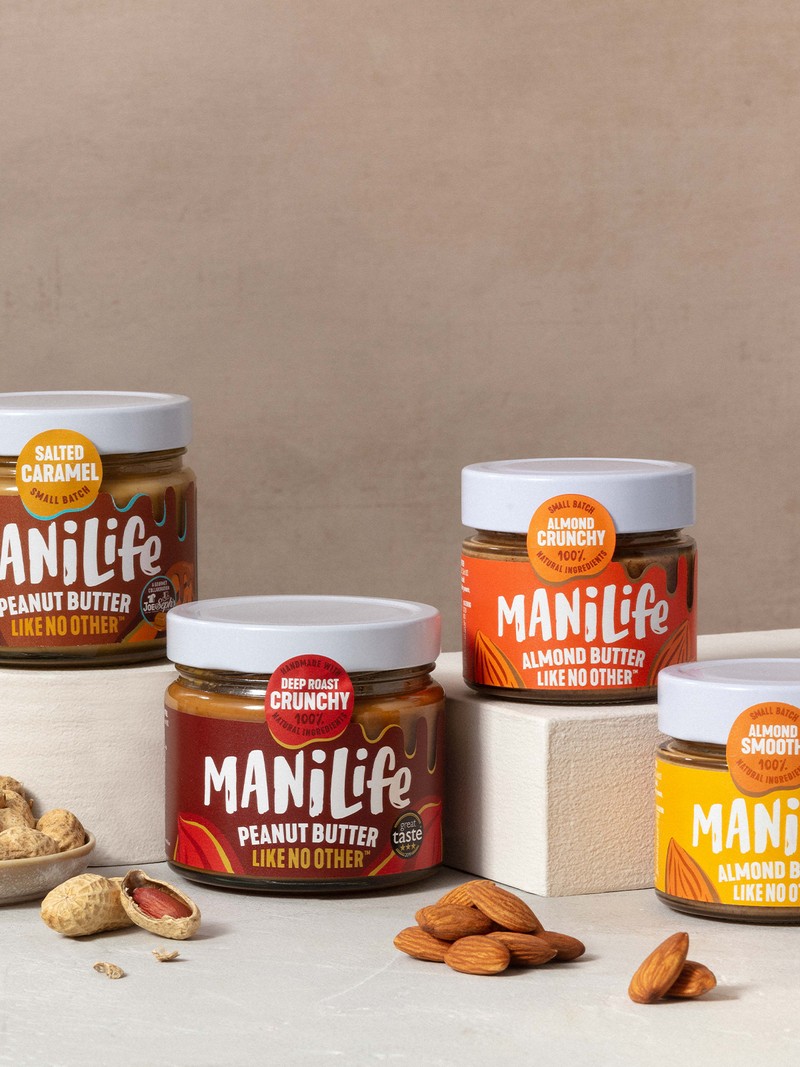
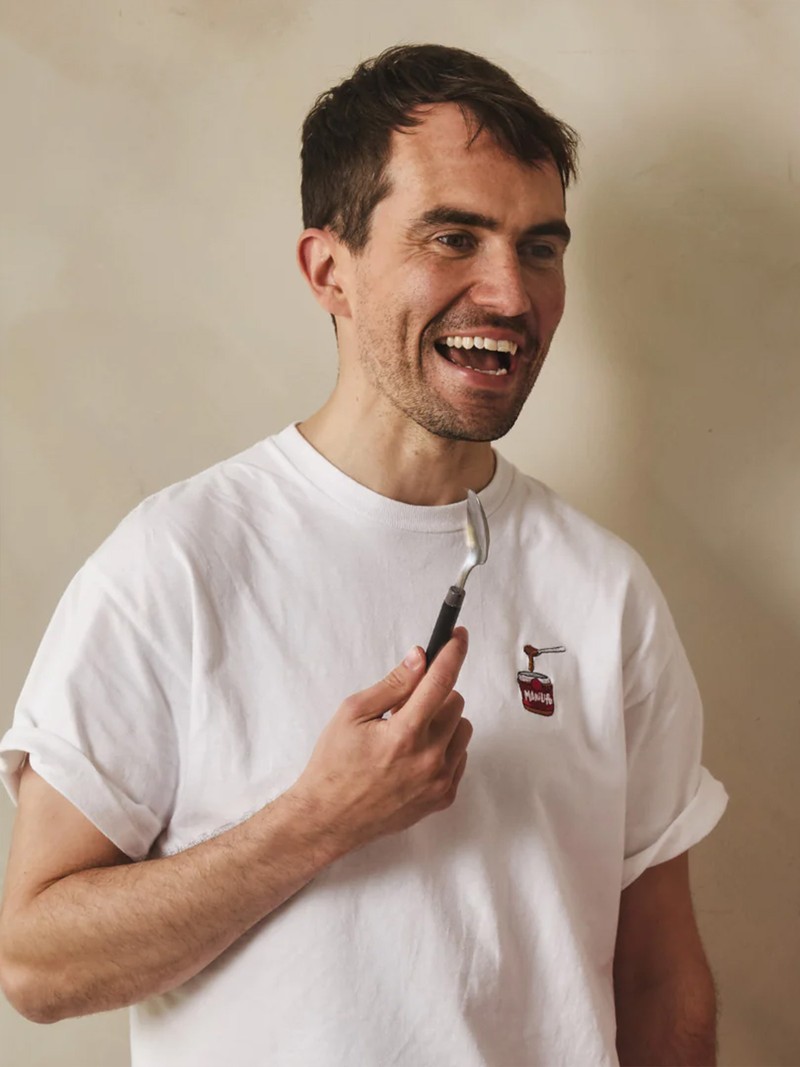
/https%3A%2F%2Fsw18.sheerluxe.com%2Fsites%2Fsheerluxe%2Ffiles%2Farticles%2F2024%2F03%2Fsl280324-xero-campaign-shot03.jpg?itok=c0jl7XWp)
